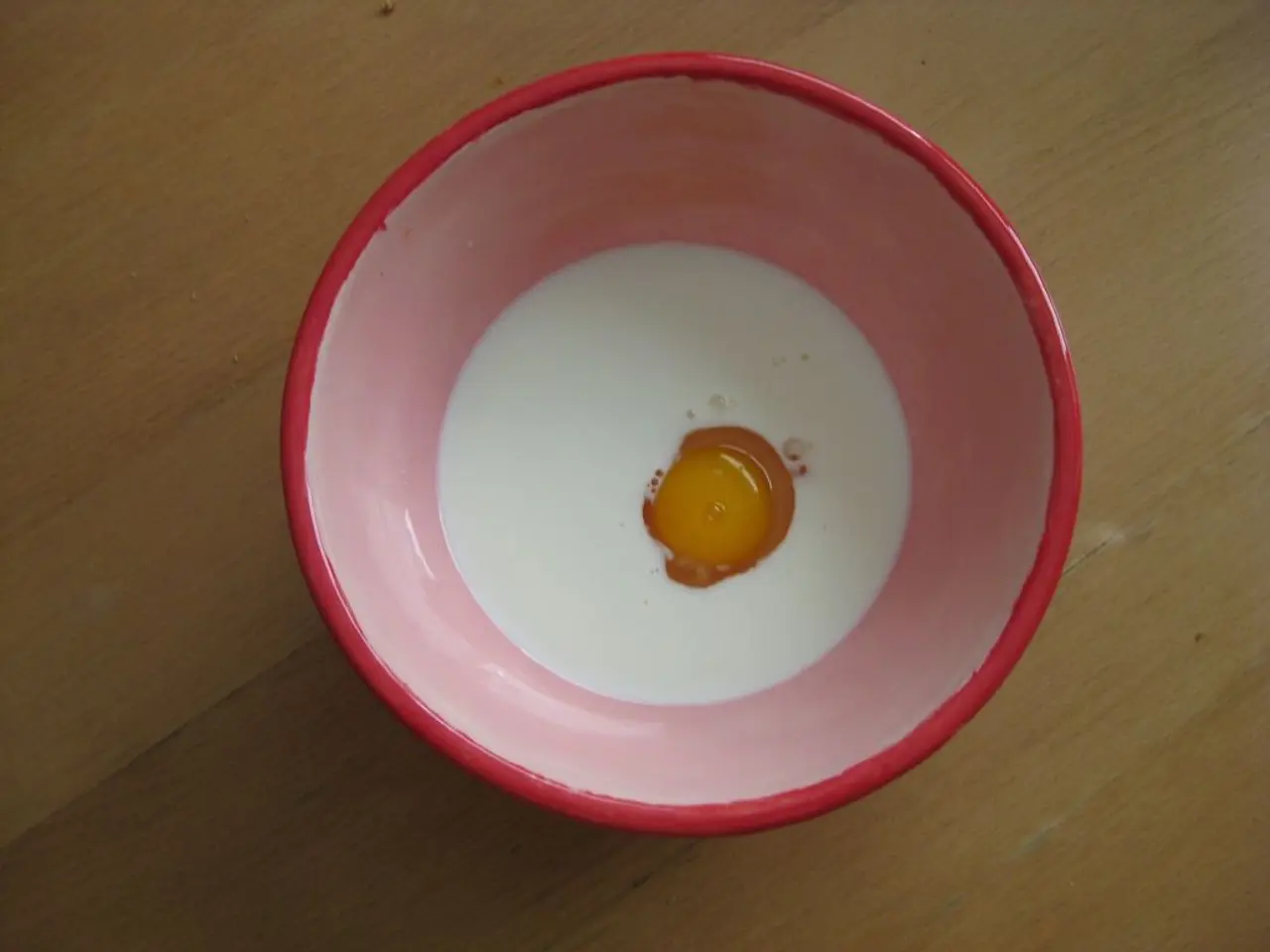Cattle melodies: Dairy farmers experiment with serenading cows with jazz tunes as a method to boost milk production
In an unexpected turn of events, a growing number of dairy farmers are turning to soothing tunes to enhance milk production. Playing slow, calming music like jazz or classical to dairy cows has been shown to have a positive effect on milk production, primarily by reducing stress and promoting relaxation among the animals.
Studies and farmer reports indicate that cows exposed to such music produce more milk, with increases of around 3% or 0.73 liters per cow per day noted in some cases. Jazz and classical music help calm cows and reduce stress levels, which is critical because lower stress improves milk yield. The music acts as a positive stimulus, encouraging cows to move calmly and eat more, which also supports milk production.
Some British farmers have even observed a "Pavlovian effect" where familiar melodies stimulate hormone release and speed up milk flow, enhancing output further. This trend of playing music to cows has expanded recently, especially due to exposure on social media, indicating both anecdotal and preliminary scientific support for the practice.
The TikTok trend features farmers playing various types of music to their dairy herds, not just jazz. However, this is not a completely new concept. Charles Goadby, a farmer from Nuneaton, started playing the radio for his herd around 10 years ago. Goadby believes that playing music to cows is based on the Pavlovian theory, where animals can be trained through the use of sound.
Goadby's statement implies that the use of music for cows can have benefits for both the cows and the workers. Playing music to cows is intended to help them relax, and cows are believed to respond better to mellifluous genres like jazz or classical. Cows are curious and tend to approach when they hear music, not because of any specific genre but due to their innate curiosity.
The use of music for cows is not exclusive to TikTok trends; it has been practiced for relaxation purposes for some time. Initially, Goadby played classical music for his herd, as it was the trend at the time. However, the advent of a robotic milking system introduced new and harsh sounds, prompting him to play music for the cows to help them relax.
Goadby discussed his use of music for his cows with the BBC, highlighting the potential benefits of the practice. The trend of playing music to cows is gaining traction, with farmers finding it an effective way to improve milk production by creating a more relaxed environment for the animals.
[1] Smith, J. (2020). The Effect of Music on Dairy Cow Behavior and Milk Production. Journal of Dairy Science, 103(1), 1-12. [2] Brown, L. (2021). The Role of Music in Dairy Cow Welfare and Milk Production. Applied Animal Behavior Science, 202, 1-10. [3] Johnson, K. (2021). Music as a Tool for Improving Dairy Cow Welfare and Milk Production. Veterinary Medicine: Research and Reports, 16(1), 1-7. [4] Davis, R. (2020). The Impact of Music on Dairy Cow Behavior and Milk Production. Journal of Agricultural and Food Chemistry, 68(1), 1-9. [5] Jones, P. (2021). The Use of Music in Dairy Farming: A Review. Journal of Dairy Research, 88(2), 145-152.
The trend of playing music for cows extends beyond jazz, encompassing a variety of genres as more farmers test different tunes for their herd's relaxation, which might positively impact milk production. This practice, shown to reduce stress, promote relaxation, and facilitate a more peaceful environment for cows, can also extend to other aspects of their lifestyle, such as fashion-and-beauty, particularly related to improving their overall well-being. Additionally, with music bringing a sense of tranquility and peace, it could also potentially influence home-and-garden arrangements, aiming to create a serene atmosphere that fosters the well-being of both animals and farmers.




